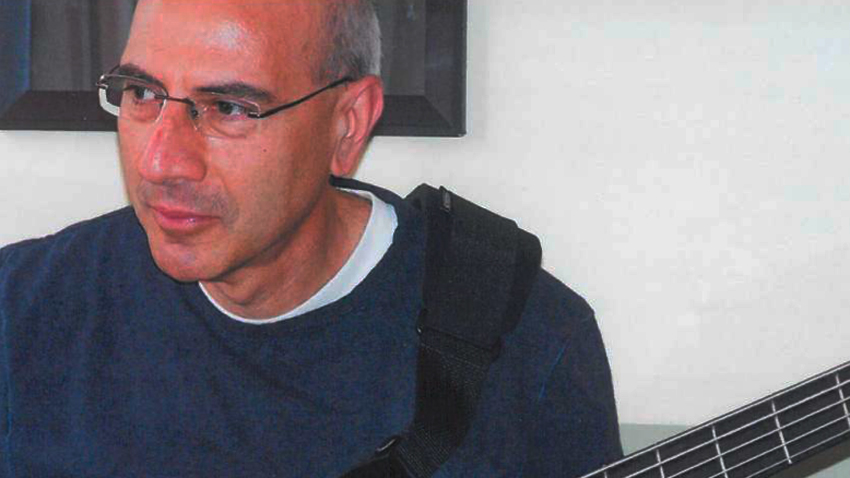Music Biz 411: Beware - counterfeit guitars!
A top music industry attorney breaks down the issues of the day

Want all the hottest music and gear news, reviews, deals, features and more, direct to your inbox? Sign up here.
You are now subscribed
Your newsletter sign-up was successful
"You call it a bargain.. NOT the best you've ever had..." Trolling the web in search of a bargain guitar can lead you down a path to purchasing a piece of shaped basswood that you might call a guitar. You might also want to call that purchase a counterfeit. Want to make sure you don't get fooled again? Here are some things to keep in mind:
A guitar (or bass) is "counterfeit" when a bona fide trademark is placed on an inferior substitute instrument that has been held out to the general consuming public as the original, authentic brand. See 15 U.S.C. § 1127; Trade Marks Act 1994, c.26 §97 (Eng.).
Let's say you're searching www.wehavecheapoguitars.com, and you see a "Spectobisky SoundFury" guitar with "silver hardware and white and black color" for sale.It even has a rosewood fingerboard made in Shandong China. The website description states a price of $120 - $150 USD. Even though you believe that there is no import line made by Spectobisky, and you know that the Spectobisky SoundFury model retails new for $4,000, and never less than $3,200 used, you can't resist. What a deal! Bragging rights are yours.
So you follow the website's PayPal instructions, and three weeks later, a yellow foam package wrapped in yellow tape shows up at your door - not quite the method of protection you expected. Upon extrication, you hold the SoundFury in all of its inglorious cheapness. There is no backplate, the pickups are not screwed in, and the neck pocket has a gap the size of the Grand Canyon. Oh, yeah, it won't stay in tune, either. But, hey, you have yourself a genuine fake Spectobisky, and that is what counts - right?
Not quite right. By supporting this counterfeit-laden website, you are aiding and abetting the very destruction of the companies you hold in high regard. Counterfeits are the scourge of all guitar companies. Each counterfeit sold is one less real guitar sold by an authentic manufacturer that invests hard-earned dollars to constantly improve and market its products. Each counterfeit sold is one more less-than-quality instrument that may harm the reputation of the authentic company (although we know that you know what you bought).
This not to say that every guitar that looks like an original is a counterfeit. There are many proprietary guitar body designs and just "styles" of body designs. Check the headstock; if it is an exact copy, it will have the faked company logo and the exact shape of the authentic brand. It may even say "Made in The USA" (or any other country in which the original was manufactured). Remember: there is no quality control on these fakes, so the parts that you count on for quality (tuning machines, pickups, bridges, etc.) are fakes and are of poor quality. Counterfeit buyer, beware. It is only guitar wasteland.
Prior to forming Bienstock & Michael, P.C. in 1987, Ronald S. Bienstock was editor-in-chief and publisher of International Musician & Recording World and served as General Counsel to Hoshino, U.S.A. (manufacturer of Ibanez guitars and electronics, and Tama drums). In 1991, Bienstock was voted one of the top 100 "Most Influential People in the Music Business" by BAM Magazine. Today, Bienstock & Michael's practice serves a broad spectrum of clients throughout the entertainment and musical instrument industries, specializing in the fields of intellectual property, business matters, and litigation.
Want all the hottest music and gear news, reviews, deals, features and more, direct to your inbox? Sign up here.
Bienstock teaches Entertainment Law as an adjunct professor at New York University and is a frequent guest lecturer for various graduate and undergraduate schools at NYU. He has also been a music business commentator for NPR, WBAI, Barely Legal Radio, Tech TV, and CNN. He has been a guest lecturer, instructor and panel moderator for BMI, ASCAP, CMJ, NEMO, SXSW, NAMM, PMA, RPMDA, the Florida Music Conference, Miami Music Conference, Atlantic Records' A&R University, the New York State Bar Association (NYSBA), the New Jersey State Bar Association (NJSBA), the New York City Bar Association, the Benjamin Cardozo School of Law, Berklee College of Music, St. John's School of Law, Rutgers School of Law, Seton Hall Law School, Ithaca College, New Jersey City University, and many other organizations and universities.